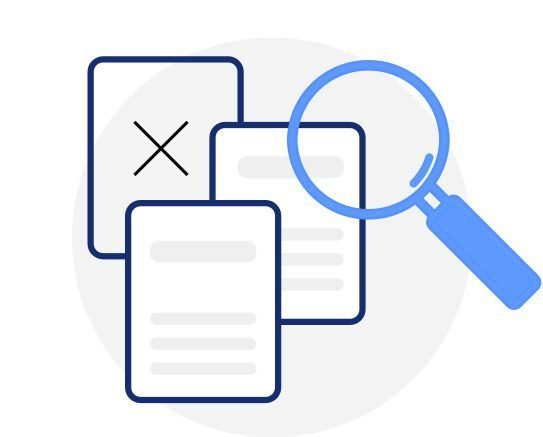
Start a business energy comparison with just your postcode. We use secure smart data to find the details we need to run your quote.

Once we know more about the needs of your business, we'll compare quotes and exclusive deals from our panel of trusted UK suppliers.

One of our experts will explain the quotes on screen and answer any questions. You choose the best deal and we’ll handle the rest.
While most businesses benefit from Superfast and Ultrafast Fibre, our agents provide personalized recommendations tailored to your specific needs
We verify the actual speed available at your premises instead of relying on supplier marketing claims, ensuring no unexpected surprises
While most businesses benefit from Superfast and Ultrafast Fibre, our agents provide personalized recommendations tailored to your specific needs
Explore our innovative solutions designed to elevate your business operations through advanced contact center services and cutting-edge technology. Whether you’re looking to enhance customer interactions or streamline processes, our tailored offerings ensure seamless integration and optimal performance. Discover how our expertise can help you achieve your goals with efficiency and precision.
When you compare business energy rates, it's unlikely that the rates you're quoted will be cheaper than the rates you're currently paying. This is because inflation means prices tend to go up over time. If you're renewing after a long-term fixed deal, rates may have risen considerably since you last took out a new contract.
And even though energy prices have been coming down since they spiked in 2022, and the market has become less volatile, rates are still higher than at any point since about September 2021.
At Hycus Solutions, we aim to find the best possible rates for your next energy contract compared to what you would be facing elsewhere or your current supplier’s out-of-contract rates. Unless you signed a contract when prices were at their highest, it’s unlikely that you’ll be able to get rates lower than those you’re currently paying.
| Business size | Electricity | Gas |
| Micro Business | 25.7p per kWh | 7.3p per kWh |
| Small Business | 25.5p per kWh | 7.0p per kWh |
| Medium Business | 27.0p per kWh | 7.3p per kWh |
| Large Business | 24.4p per kWh | 7.5p per kWh |
| Supplier | Gas unit rate (kWh) | Gas standing charge (daily) | Electricity unit rate (kWh) | Electricity standing charge (daily) |
| British Gas | 7.3p | 64.3p | 26.0p | 49.9p |
| BG Lite | 7.8p | 64.3p | 26.2p | 56.0p |
| EDF Energy | 7.4p | 43.1p | 25.5p | 57.2p |
| EON Next | 8.0p | 30.0p | 27.2p | 37.5p |
| ScottishPower | 6.9p | 35.1p | 23.4p | 87.6p |
| Smartest Energy | 5.7p | 144.3p | 24.1p | 59.4p |
| Valda Energy | 7.1p | 40.0p | 25.1p | 46.1p |
The average amount of energy a business uses will depend upon the size of the business, along with how and why it uses energy.
Energy usage is measured in kilowatt-hours (kWh) and to give you an idea of how much energy a business like yours should be using, below shows general usage for small business and medium businesses.

Opus Energy hasn’t gone bust, but it will cease trading from September this year when EDF Energy will take over its current non-domestic energy contracts.
For more information, check out the section “Has Opus Energy gone bust” in our guide explaining what you should do if your business energy supplier goes bust or ceases trading.
If you’re on a fixed Opus tariff, EDF has confirmed your prices, terms, and conditions will stay the same for the duration of your contract.
If you’re on a variable tariff, this will be matched to the closest EDF equivalent.
No, there is no price cap on business energy rates; it only applies to domestic rates. Business energy and household energy are different—this largely has to do with how energy is bought and sold and the way contracts are drawn up.
For domestic customers, the price cap is reviewed every three months. Although this doesn’t directly affect non-domestic rates, it’s worth keeping an eye on it to see whether energy prices are expected to go up. If the price cap review indicates the level of the cap will rise, it’s probably a good idea to review your existing business energy contract and compare rates.
Because of the way business energy is bought and sold, rates are constantly changing. Different suppliers offer various deals depending on when you compare and switch – so the suppliers that offer the cheapest rates are always changing. When it comes to securing a reliable business energy deal, price isn’t the only thing you should consider though – you need to make you choose a deal that best suits your business needs.
Most businesses can run smoothly with a dynamic IP address, which is what comes as standard with most broadband deals. But if your business needs its own network and wants to host its own website, email, VPN, and FTP server then a static IP is best. For more information, check out our static IP address guide.
Here’s the updated and structured version:
Although business energy bills are often more expensive than domestic energy bills, there are several reasons for this:
A number of costs contribute to the total amount you pay each month. To determine whether business energy tariffs are cheaper than household ones, it’s worth examining the standard costs found on both types of bills:
Unit Costs
Standing Charge
VAT

Get expert advice every day with our Free Daily Consultation—no cost, just solutions!

“At Hycus Solutions, we are committed to delivering innovative and cutting-edge solutions that empower businesses to thrive in the digital era. With a focus on excellence, customer satisfaction, and a passion for technology, we strive to bring value through every project we undertake. Connect with us today and let’s unlock new possibilities together.”
1st Floor, 38-B, People's Colony No 1, D Ground, Opposite La Salle School, Faisalabad
Monday - Saturday 02 PM - 10 PM
E-mail: info@hycussolutions.com
Phone: 0415477881
WhatsApp: 03137778837
WhatsApp us